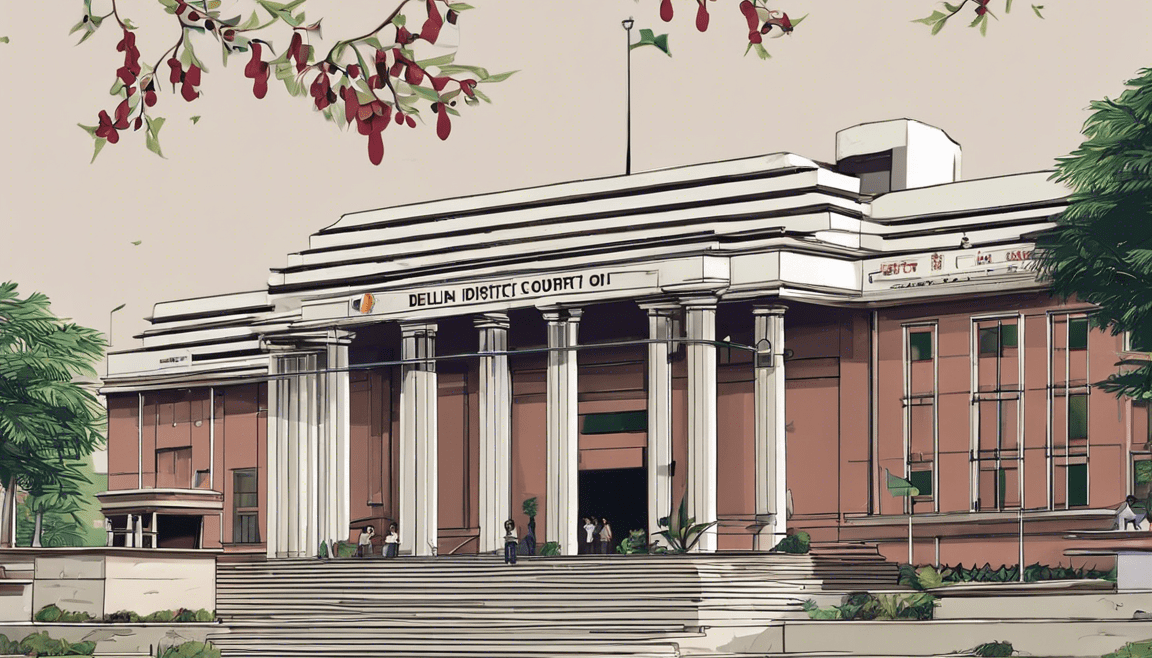Introduction
Delhi District Court: An Overview
Delhi, the vibrant and bustling capital city of India, is not only known for its rich history, diverse culture, and delicious street food but also for its significant legal institutions. One of the most crucial legal establishments in Delhi is the Delhi District Court. Delhi District Court consists of six district courts located in different regions of the city, each serving a specific geographical area and handling a wide range of legal matters. Let’s delve deeper into the workings, importance, and functions of this essential legal hub in India’s capital city.
History and Structure
Established in 1959, the Delhi District Court has a rich history of serving the citizens of Delhi with justice and fairness. It is a subordinate court of the High Court of Delhi and falls under the jurisdiction of the Government of the National Capital Territory of Delhi. The district courts in Delhi are organized geographically to ensure efficient and accessible legal services to the residents.
Functions of Delhi District Court
The Delhi District Court plays a pivotal role in the Indian legal system by handling an array of civil, criminal, and family law cases. From petty disputes to complex legal matters, the district courts cater to the diverse legal needs of the citizens. Some of the key functions of the Delhi District Court include:
1. Civil Cases: Delhi District Court is responsible for resolving civil disputes such as property matters, contract disputes, consumer cases, and more. It ensures timely adjudication of civil cases to provide relief to the aggrieved parties.
2. Criminal Cases: The district courts in Delhi hear criminal cases ranging from petty thefts to serious offenses. The courts ensure that the accused are given a fair trial and justice is served in accordance with the law.
3. Family Law Matters: Family disputes, including divorce, child custody, maintenance, and adoption cases, are also addressed by the Delhi District Court. The court strives to uphold the rights and interests of all parties involved while promoting amicable resolutions whenever possible.
4. Execution of Decrees: Delhi District Court is responsible for the execution of decrees and orders issued by the court. It ensures that the decisions of the court are implemented effectively and in a timely manner.
5. Probate and Administration Matters: The district courts in Delhi handle probate and administration cases related to wills, trusts, and estate matters. These cases are crucial in ensuring the proper distribution of assets and wealth as per the legal provisions.
Importance of Delhi District Court
The Delhi District Court holds immense significance in the legal landscape of India for various reasons. It serves as a crucial forum for the resolution of legal disputes at the grassroots level. The district courts in Delhi provide access to justice for the common man and play a vital role in upholding the rule of law. Moreover, the Delhi District Court acts as a training ground for budding lawyers, judges, and legal professionals, helping them hone their skills and expertise in the field of law.
Challenges and Reforms
Despite its importance, the Delhi District Court faces several challenges, including backlog of cases, inadequate infrastructure, and shortage of judicial officers. To address these issues, efforts are being made to streamline court procedures, enhance digitalization, and increase judicial manpower. Reforms are being implemented to improve the efficiency and efficacy of the Delhi District Court, ensuring timely dispensation of justice and reducing the burden on the legal system.
Conclusion
In conclusion, the Delhi District Court stands as a beacon of justice in the heart of India’s bustling capital city. With its rich history, diverse functions, and importance in the legal framework, the district court plays a vital role in upholding the rule of law and ensuring access to justice for all. By addressing challenges, implementing reforms, and adapting to the changing legal landscape, the Delhi District Court continues to serve as a pillar of the Indian judicial system, striving to deliver justice and fairness to the residents of Delhi.
FAQs:
1. What types of cases are heard in the Delhi District Court?
The Delhi District Court handles a wide range of cases, including civil disputes, criminal offenses, family law matters, execution of decrees, probate and administration cases, and more.
2. How can I file a case in the Delhi District Court?
To file a case in the Delhi District Court, you need to consult a lawyer, prepare the necessary documents, and submit your case through the court’s prescribed procedures.
3. Are there any online services available for litigants in the Delhi District Court?
Yes, the Delhi District Court provides online services for case status tracking, e-filing of cases, and virtual court hearings to facilitate access to justice and expedite legal proceedings.
4. How long does it take for a case to be resolved in the Delhi District Court?
The timeframe for resolving a case in the Delhi District Court varies depending on the complexity of the case, availability of evidence, and other factors. Efforts are being made to expedite the legal process and reduce delays in court proceedings.
5. Can I appeal a decision made by the Delhi District Court?
Yes, if you are dissatisfied with the decision of the Delhi District Court, you have the right to appeal to a higher court, such as the High Court of Delhi, for a review of the judgment. It is advisable to seek legal counsel for the appellate process.
